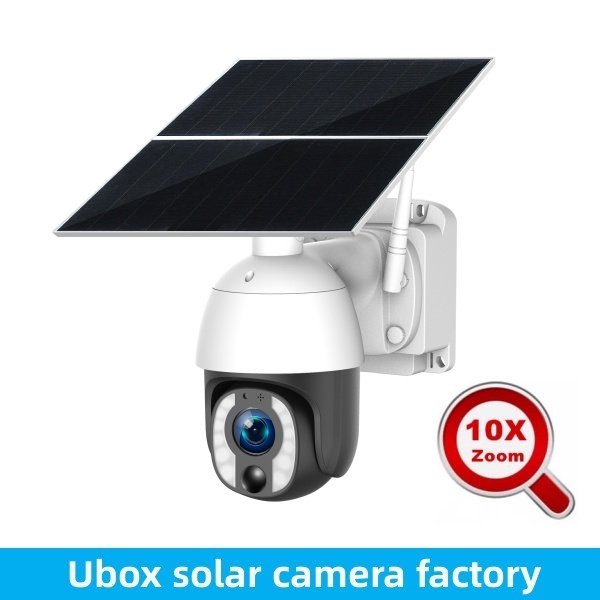MSDS & UN38.3: The Critical Role of Lithium Battery Safety Standards in Solar Camera Transportation
Imagine this scenario: your long-awaited shipment of solar security cameras, crucial for a major client’s project, is stuck at customs. Weeks turn into a month, deadlines are missed, and your client is furious. The reason? A missing or invalid battery safety document. This isn’t a rare occurrence; it’s a costly reality for many importers who overlook two critical acronyms: MSDS and UN38.3.
As an engineer who has spent over a decade designing and shipping these products globally, I’ve seen how a small oversight in battery compliance can derail an entire business operation. For wholesalers, brand owners, and Amazon sellers, understanding these standards isn’t just about following rules—it’s about protecting your investment, your reputation, and your supply chain. These regulations are the non-negotiable gatekeepers for transporting any device with a lithium-ion battery, the powerhouse behind every long-range solar security camera.
What Are MSDS and UN38.3? A Plain-English Guide
Technical jargon can be intimidating, but the concepts behind these standards are straightforward. Think of them as a passport and a driver’s license for your product’s battery. Without both, your product isn’t going anywhere legally or safely.
- MSDS (Material Safety Data Sheet): This is the battery’s “passport.” It’s a comprehensive document that details the chemical composition, potential hazards, handling instructions, and emergency measures related to the lithium-ion battery. It tells shippers, customs officials, and emergency responders exactly what they are dealing with and how to manage it safely.
- UN38.3: This is the battery’s “driver’s license.” It refers to Section 38.3 of the UN Manual of Tests and Criteria, a rigorous set of tests designed to prove a battery can withstand the stresses of transportation. If a battery hasn’t passed UN38.3, it is not legally certified for air, sea, or ground transport.
Essentially, the MSDS *describes* the battery’s characteristics, while the UN38.3 certification *proves* its physical resilience and safety under transport conditions. Both are mandatory for international shipping.
The Business Impact: Why Non-Compliance is a Costly Mistake
For B2B clients—from 4G operators to engineering installers—the consequences of sourcing cameras with non-compliant batteries extend far beyond a simple shipping delay. The ripple effects can severely impact your bottom line and market position.
1. Severe Shipping Delays and Rejections: This is the most immediate pain point. Customs authorities in the US, UK, Germany, and other major markets are extremely strict. A shipment without proper UN38.3 and MSDS documentation will be impounded, returned, or even destroyed. This means missed project deadlines and broken promises to your customers.
2. Escalating Financial Losses: The costs add up quickly. You’ll face carrier fines, customs storage fees, the cost of return shipping, and the expense of repackaging and resending the goods. More importantly, the tied-up capital and lost sales opportunities can be devastating for both established distributors and growing entrepreneurs.
3. Safety Hazards and Brand Damage: These tests exist for a reason. Poorly manufactured batteries can short-circuit, overheat, and cause fires during transit. A single incident can lead to catastrophic damage, legal liability, and irreparable harm to your brand’s reputation. No business wants to be known for selling unsafe products.
4. Restricted Market Access: Major e-commerce platforms like Amazon have stringent requirements for products containing lithium batteries, demanding valid UN38.3 reports. Without this certification, you are locked out of one of the world’s largest retail channels. Similarly, many corporate and government tenders require full compliance documentation as a prerequisite.
A Deep Dive into UN38.3 Testing: From Our Lab to Your Warehouse
To truly appreciate the importance of UN38.3, it helps to understand the gauntlet of tests a battery must survive. As a factory, we ensure that the batteries integrated into our solar cameras have undergone and passed these evaluations. This isn’t just about a piece of paper; it’s about engineering for reliability.
The UN38.3 certification involves a series of eight demanding tests:
| Test Code | Test Name | Purpose & Engineering Insight |
|---|---|---|
| T1 | Altitude Simulation | Simulates the low-pressure environment of an unpressurized aircraft cargo hold. A failure here could lead to leakage or explosion mid-flight. |
| T2 | Thermal Test | Subjects the battery to extreme temperature cycles (-40°C to +75°C). This ensures the battery remains stable whether it’s in a frozen cargo bay or a sun-baked warehouse. |
| T3 | Vibration Test | Mimics the constant vibrations of truck, train, or airplane transport. This tests the integrity of internal connections and prevents fatigue-related failures. |
| T4 | Shock Test | Simulates rough handling and drops. A robust battery pack must withstand significant g-forces without internal damage or short-circuiting. |
| T5 | External Short Circuit | Tests the battery’s safety features by intentionally shorting the terminals at high temperature. The battery must not vent, leak, or explode. |
| T6 | Impact / Crush Test | Simulates heavy objects falling on the battery or crushing forces. This is crucial for ensuring safety in crowded shipping containers. |
| T7 | Overcharge Test | Forces a charge at twice the recommended current. This tests the battery’s internal protection circuits, a key function of the Battery Management System (BMS). |
| T8 | Forced Discharge Test | Evaluates the stability of cells within a battery pack, ensuring one faulty cell doesn’t trigger a chain reaction. |
Passing these tests is a testament to quality manufacturing. It’s a guarantee that the power source of your battery-powered security camera is built to last and operate safely, a principle we explore further in our analysis of BMS technology.
The UBOXCAM Advantage: How We Guarantee Compliant & Safe Batteries
At UBOXCAM, we treat battery compliance not as a checkbox, but as a core pillar of our product design and service commitment. We understand that our B2B partners’ success depends on a seamless supply chain. Here’s how we de-risk the process for you.
1. Rigorous Supplier Qualification: We don’t just source batteries; we build partnerships. Our battery cell and pack suppliers are rigorously vetted and must provide complete, valid, and up-to-date UN38.3 test reports and MSDS documentation before a single unit is ordered. We reject any supplier who cannot meet these standards.
2. Engineering Verification: Our technical team personally reviews every report to ensure it corresponds to the exact battery model used in our cameras. We cross-reference serial numbers, manufacturing dates, and technical specifications. This prevents the common issue of suppliers providing generic or outdated documents.
3. Integrated BMS for Enhanced Safety: Our commitment to safety goes beyond transport certification. Every UBOXCAM solar camera features an advanced Battery Management System (BMS). This onboard intelligence constantly monitors and balances cells, preventing overcharge, over-discharge, and short circuits—the very conditions UN38.3 tests for. It’s an active layer of safety that protects your product throughout its entire lifecycle.
4. Pre-Cleared Logistics Support: When you partner with us, you receive a full documentation package with every order. We provide the correct MSDS, UN38.3 reports, and guidance on proper labeling and packaging for air and sea freight. Our logistics team works with carriers to ensure all paperwork is in order, enabling a smooth journey from our factory to your warehouse.
Practical Checklist for Buyers: What to Ask Your Solar Camera Supplier
To empower your procurement process, here are the essential questions you should ask any potential supplier. A reputable and experienced manufacturer will be able to answer these confidently and provide documentation immediately.
- Can you provide the full, current UN38.3 test report for the specific battery model used in this camera? Ensure the model number on the report matches the battery.
- Is the Material Safety Data Sheet (MSDS) up-to-date and compliant with current regulations?
- How do you package battery-powered devices for international air and sea freight to comply with IATA and IMDG regulations?
- What is your standard procedure for providing shipping documentation for international orders?
- Can you confirm that your internal quality control includes verifying battery compliance for every production batch?
Conclusion: Secure Your Supply Chain, Not Just Your Premises
In the global security market, the strength of your supply chain is as critical as the quality of your products. MSDS and UN38.3 compliance are not bureaucratic hurdles; they are fundamental safeguards for your business continuity, financial stability, and brand integrity. Overlooking them is a gamble that successful businesses are unwilling to take.
Choosing a manufacturing partner who understands and masters these regulations is paramount. It transforms a potential liability into a competitive advantage, ensuring your products move seamlessly across borders and arrive ready for deployment. Ready to partner with a manufacturer that takes battery safety as seriously as you take security? Contact UBOXCAM today to discuss your project and ensure your next shipment of solar security cameras arrives safely, compliantly, and on time.

